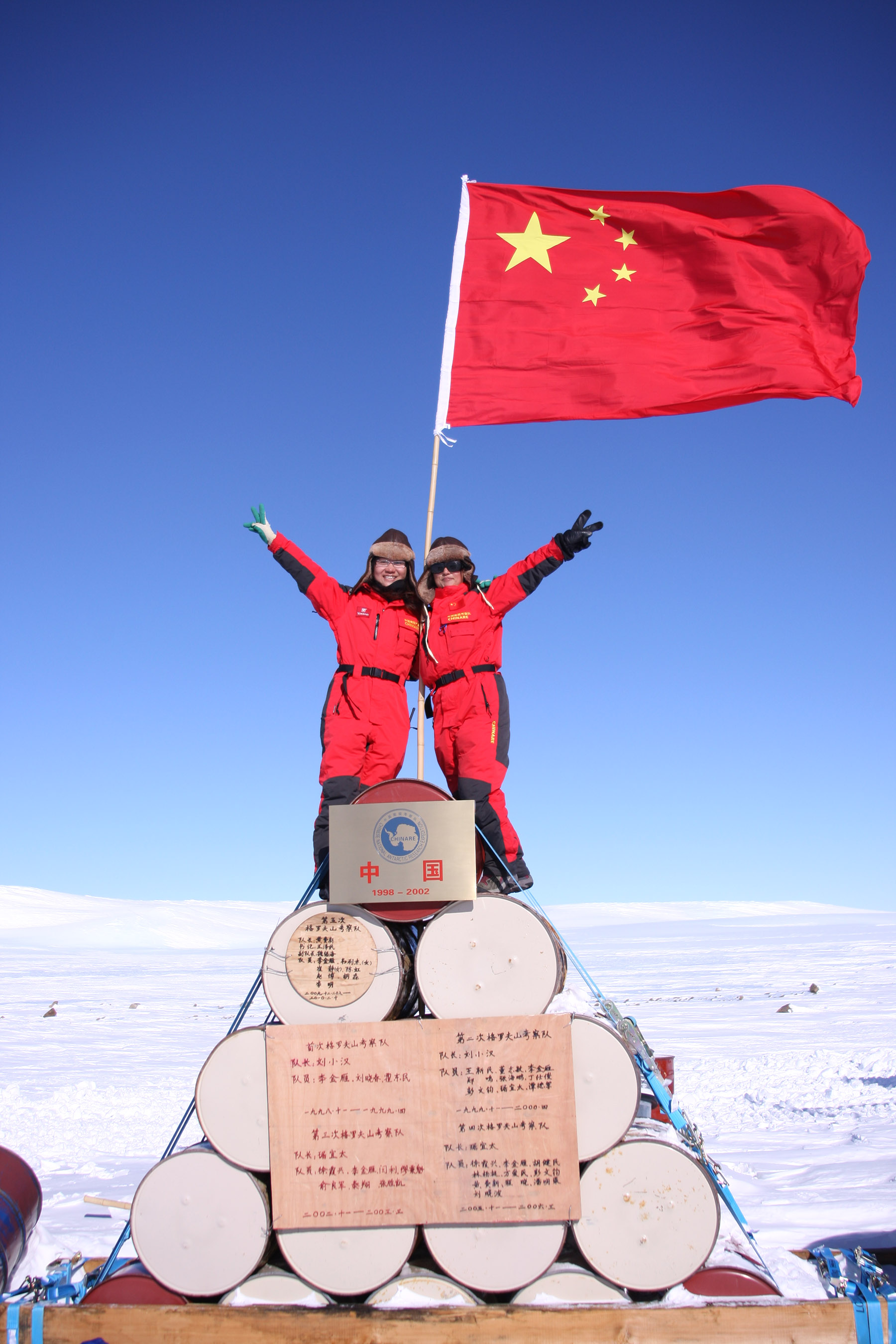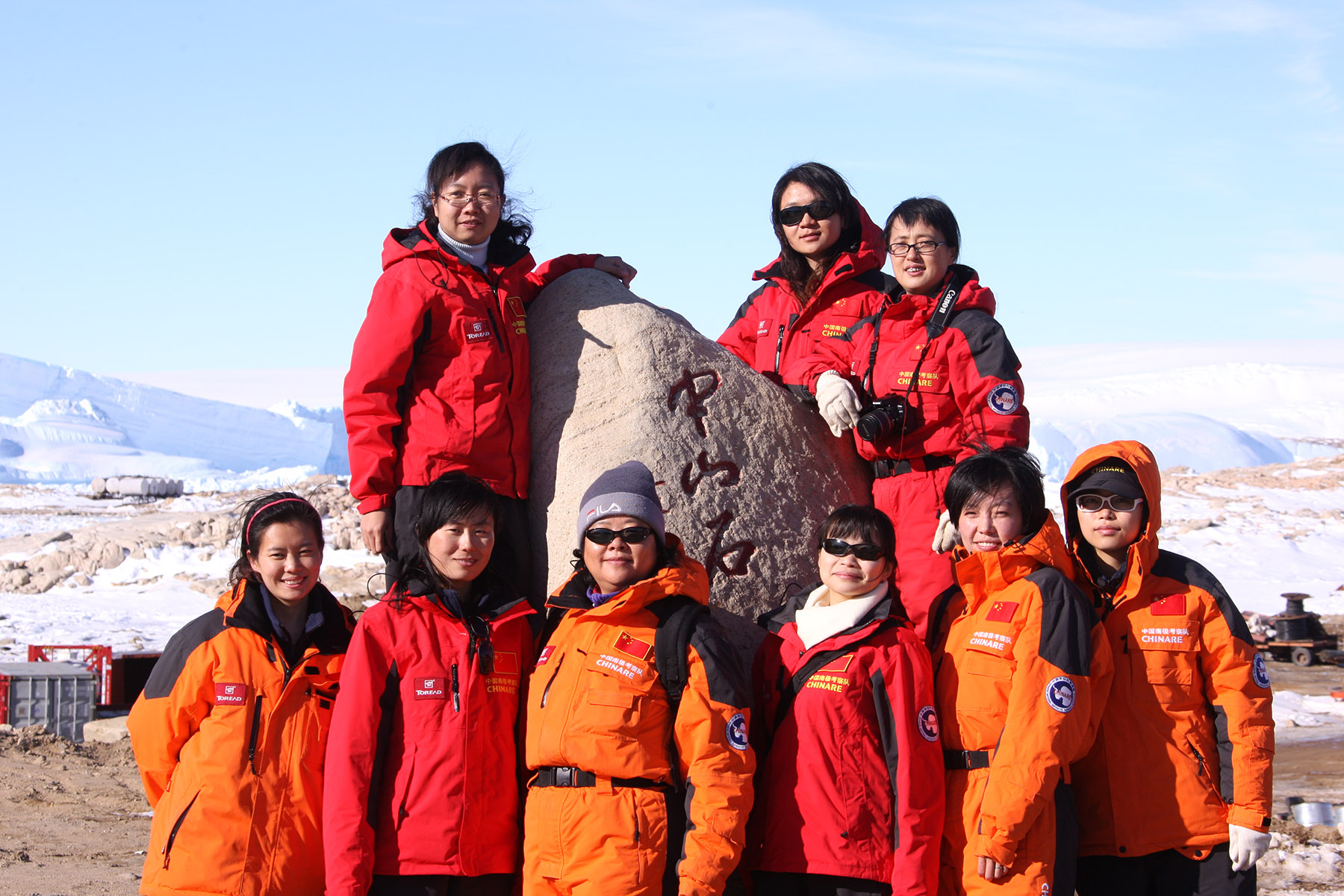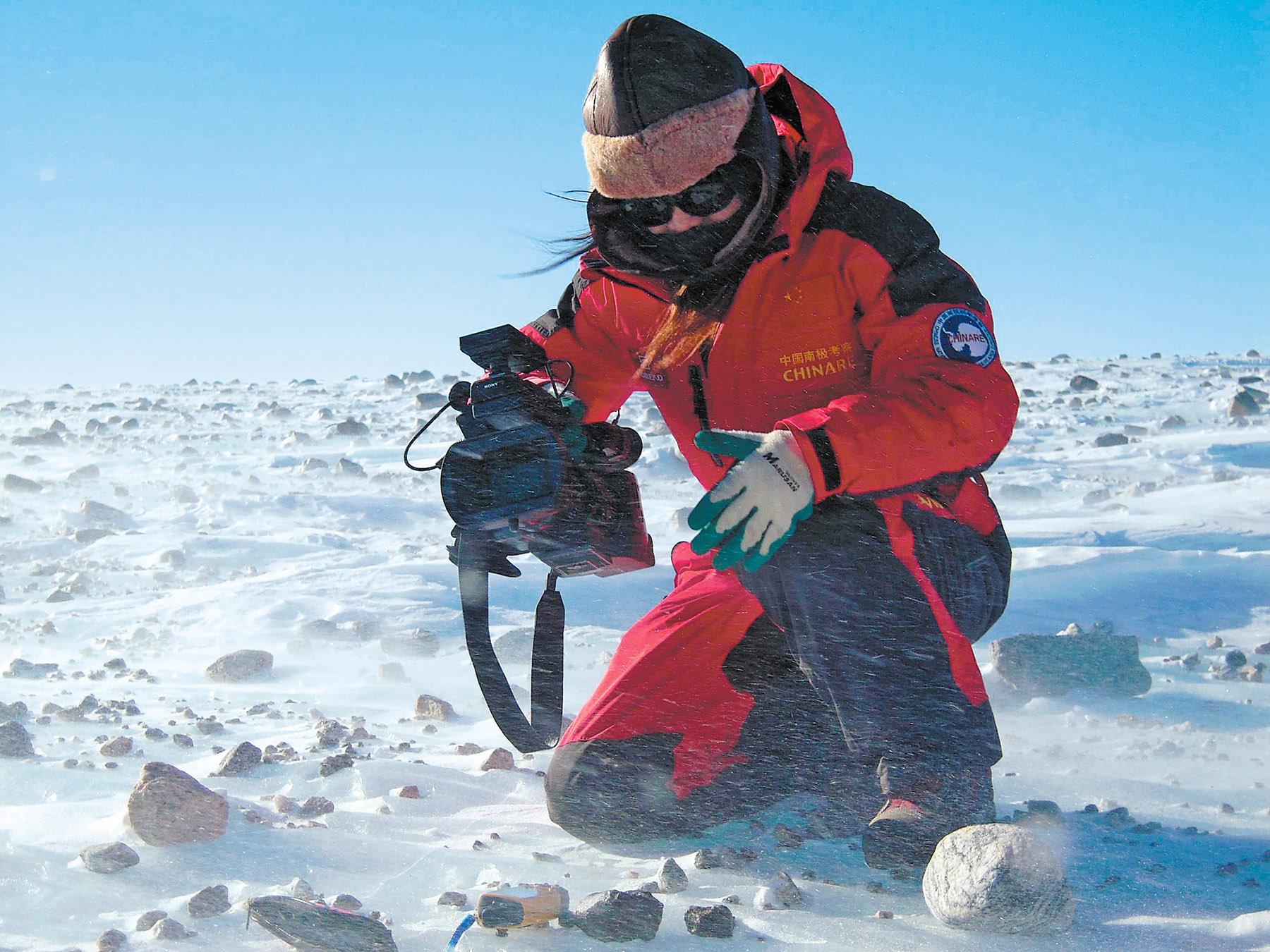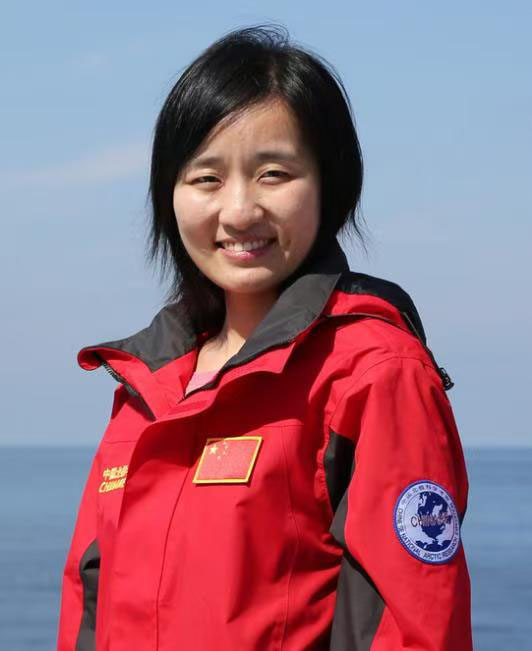Women on polar expedition teams share their stories, proving gender has no boundaries while inspiring others to thrive in their own careers, Wang Xin reports.

Wu Tingting, 42, the first female doctor in China's polar expedition teams, clearly remembers her marvelous journey 15 years ago.
In 2010, Wu was a surgeon at a top hospital in Shanghai when she was fortunate enough to seize the opportunity to join China's fourth Arctic expedition and the 27th Antarctic expedition.
Generally, male surgeons are dominant in hospitals, as was the case for the polar expedition teams, mainly due to physical strength and endurance in extreme climate conditions. However, it does not necessarily mean that females are not able to qualify for either position. Instead, their unique features and traits add color to the journey, demonstrating the vigorous female power of pushing the polar limits.
"We all have our strengths and weaknesses. As female doctors, we tend to be more attentive and can observe the subtle changes in our members faster and better, especially when it comes to mental health," says Wu.
READ MORE: Polar tourism comes in from the cold
She points out that, in addition to the dangers brought by extreme weather conditions, "loneliness "was a big challenge for polar expedition team members. At that time, they had few entertainment facilities on board and little access to digital entertainment as they do now. Staying with the same small group for half a year can be mentally challenging; thus, thorough health examinations and attentive psychological comfort are essential to keep the members in good condition for continuous and safe polar scientific research.

Women are more emotionally sensitive and better at organizing cultural activities to lighten the mood on board, especially during special occasions such as Spring Festival, Wu adds.
"I was lucky to have generally smooth trips. Such experiences have broadened my view and made me more open-hearted, courageous, and daring," recalls Wu with a smile.
As China continuously advances its efforts in polar scientific research, the working and living conditions for polar expedition teams have greatly improved. More female researchers from various fields who share an interest in the polar region are actively joining expeditions and making great contributions.
Gong Huijia, 41, a teacher at Shanghai Maritime University, is among those realizing their dreams. As a pilot of the Chinese icebreaker Xuelong, she joined the sixth Arctic expedition and the 31st Antarctic expedition in 2014.
Compared to Wu, Gong faced much more pressure and bigger daily challenges on board. As an icebreaker pilot, she and her teammates needed to stay focused, make quick and accurate judgments, choose the right paths, and navigate through extreme weather conditions.

"Piloting the Xuelong was not easy," says Gong. "We have four pilots on our team, and each works a shift to keep the icebreaker going. We also have to adapt to polar time and the constant sound of ice breaking. My body clock was totally out of whack."
Gong clearly recalls many thrilling moments during her expeditions. Estimating the ice thickness was difficult in the polar regions. The pilot sometimes got extremely nervous when making a wrong estimate, and the icebreaker would get stuck.
"The physiological structure of females and males is different, but the ocean and maritime rules treat everyone the same. We have to overcome the challenges, and I'm truly grateful for the experience to improve my skills," says Gong.
Having longed for the ocean since childhood, Gong cherishes the unity and friendships she made with other team members. After spending decades on the vast sea, she highlights the importance of "happiness, harmony and honor", taken from her experiences.
"Although male members are still the majority in polar expeditions, the women's empathy contributes greatly to the harmonious atmosphere along the journey. We connect people, liven the atmosphere, and showcase female power with our solid expertise," she adds.

Wang Nan, a 33-year-old female team member of the 32nd Antarctic expedition in 2015 and the ninth Arctic expedition in 2018, hopes to help more people learn about the polar region and raise public awareness of its protection.
Her six-month journey in the Antarctic and three-month expedition in the Arctic have been life-changing for Wang. Once a journalist, she launched a pro bono program last year to promote the polar region culture.
"The Arctic and Antarctica are more than just geographical concepts to me; they are more spiritual, as the experiences offered me immense emotional support. Whenever I encounter setbacks or difficulties, I recall my days participating in the polar expeditions, and I feel a renewed strength," says Wang.
ALSO READ: Polar icebreaker ignites national pride
She has also been organizing cultural events to popularize polar culture and share the experiences of female expedition team members. With their true stories of such extreme conditions, Wang hopes to inspire more women to gain confidence, unleash their potential, discover more possibilities, and push their own limits.
"Many jobs, including the challenging polar exploration, are never exclusive to males. Women can also make it if they have the will. We hope to showcase female power through true stories and drive their spirit to thrive in their careers," says Wang.
Contact the writer at wangxin2@chinadaily.com.cn


